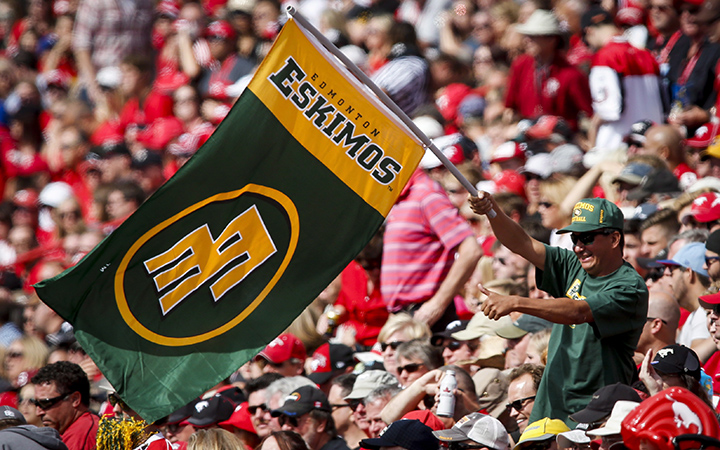EDMONTON – Canada’s national Inuit organization is calling for the Edmonton Eskimos football team to change its name. So what does the word really mean?

Many historians believe the origin of Eskimo comes from an Algonquin term meaning “eaters of raw meat.”
And it wasn’t used in a nice way, says Niigaan Sinclair, head of the native studies department at the University of Manitoba.
When Europeans first settled in North America, they asked different aboriginal tribes what others were called, Sinclair explains. That included pointing at a group of northern dwellers who ate flesh from seals and whales.
READ MORE: Edmonton Eskimos’ Grey Cup run getting lots of support from home
“So the Europeans come in and they’re talking to the Cree and say: ‘Who are those people?”‘ Sinclair says.
“‘Oh those? Those are the meat-eaters over there.”‘
There are other theories.
An expert with the Smithsonian Institution has proposed that Eskimo actually comes from another aboriginal term that refers to people wearing snowshoes.
Despite the label, the group continued to call themselves Inuit, which means “the people” in Inuktitut. They’d already been using it for hundreds of years, says Sinclair.
In the 1970s, others started to listen. At the first Inuit Circumpolar Conference in Alaska, delegates agreed the term Inuit should be used instead. Some tribes in Alaska and Siberia continue to identify as Eskimo.
“Nobody uses Eskimo in Canada anymore – at all,” says Sinclair.
WATCH: Meet an Eskimos super fan
The word remains on some food items, such as Eskimo Pie ice-cream bars – banana-shaped ones are called Eskimo Monkeys in Thailand. In New Zealand, Eskimos are a popular type of marshmallow candy. In 2009, an Inuit woman from Canada who was travelling in New Zealand made headlines when she called the sweets racist.
Sinclair is Anishinabe – not Ojibwa, a term that was also placed on his people, he says.
He remembers watching football as he was growing up and how his father was offended by the Edmonton Eskimos.
“He’d be saying, ‘Well, that’s not an appropriate name for a football team.”‘
Sinclair says the term is disrespectful and should no longer be the name of the team.
“It’s not easy to divorce ourselves from these terms, but history will eventually rid ourselves of these racially inappropriate, misdescribing names.”



Comments